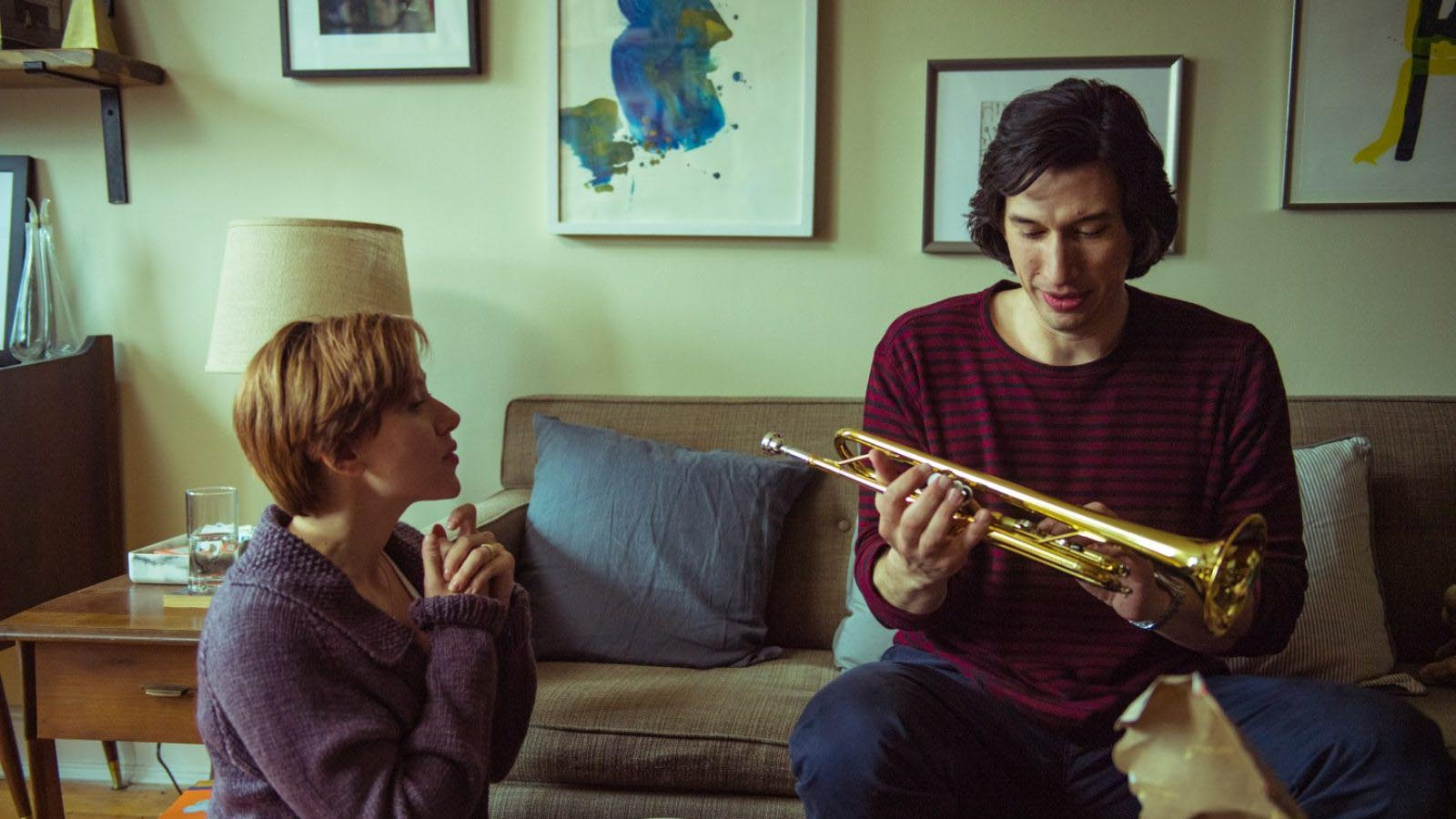Noah Baumbach’s Marriage Story

When Noah Baumbach’s Marriage Story premiered in Venice last month, Leonardo Goi, dispatching to the Notebook, pretty well summed up the wave of acclaim rolling in from across the Atlantic when he called the writer-director’s tenth feature “a journey that’s at once devastating, hilarious, empathetic, and heart-wrenchingly vivid.” Having scored more raves in Telluride and Toronto, Marriage Story will next screen at the New York and London festivals before opening in theaters on November 6 and streaming on Netflix on December 6.
Charlie (Adam Driver) is a director of lauded off-Broadway productions—he’s about to be awarded a genius grant—whose company leans heavily on the lead performances of his wife, Nicole (Scarlett Johansson). “At one point,” notes Jake Cole at Slant, “we catch a glimpse of an old magazine profile of the couple—written at the height of their artistic collaboration and domestic bliss—titled ‘Scenes from a Marriage,’ a throwaway allusion to Ingmar Bergman that’s also a winking promise of the decline and fall to come.” As a teen, Nicole landed roles in Hollywood movies, and now that she’s been offered a part in a television pilot, she’s heading back to Los Angeles. Charlie insists on remaining in New York. For the sake of their son (Azhy Robertson), and because Charlie and Nicole take themselves for the kind of people who don’t need lawyers, they aim to make the breakup as smooth, quick, and amicable as possible.
Nicole’s friends, though, advise that she lawyer up. Enter Laura Dern, who’s been singled out in nearly every review so far for what Christina Newland, writing for Sight & Sound, calls “a show-stopper of a monologue.” Charlie counters with two lawyers in rapid succession (Ray Liotta and Alan Alda), and that’s when the gloves come off. “What Marriage Story understands is that the whole system can seem designed to make people hate each other, the better to benefit their representation,” observes the A.V. Club’s A. A. Dowd. Talking to Josh Rottenberg in the Los Angeles Times, Baumbach even refers to what he calls “the divorce-industrial complex.” At the Ringer, Adam Nayman writes that “instead of cultivating his typical hyperarticulate cruelty, Baumbach’s made a movie that is, in every way, about love—and specifically how it’s only love that can make you truly mean.”
Rolling Stone’s David Fear notes that when Baumbach introduced the screening in Toronto, he said that “even though he’d written every word Driver and Johansson say, he would watch the duo’s scenes and feel as if we were witnessing something else entirely—as if Marriage Story was not really his movie but theirs. And it is their movie.” Baumbach has made “a drama designed to be inhabited, not performed, by actors, and both stars bring an uncomfortable intimacy to each wounded look, each frustrated exchange, each incriminating accusation.”
Film Comment editor Nicolas Rapold predicts that Marriage Story “will be rightly praised for Johansson’s breathtaking tightrope walk as Nicole extracts and recenters herself; the star shows a stripped-down, vulnerable candor that hasn’t been apparent for quite some time.” As for Driver, Time’s Stephanie Zacharek suggests that to witness Charlie “close down—to see his face as swollen as a thundercloud with anguish and anger—is to see a movie star channel the very things we’ve all, at one time or another, struggled to banish or at least suppress. Driver ferries Baumbach’s super-cerebral script—Baumbach could never not be cerebral—to a place beyond thinking, where raw emotion becomes an entropic, hurricane swirl.”
Filmmaker’s Vadim Rizov finds that “working with his longtime ace editor Jennifer Lame, Baumbach changes up his stylistic game, moving away from rapidly-cut hand-held jitters (as well as the elaborate tableaux staging deployed in Mistress America’s finale) and towards slower-cut, more conventional coverage that, per usual wisdom, lets scenes ‘breathe,’ which makes the film longer than usual—a hefty 135 minutes, his first-ever film over two hours.” The Telegraph’s Robbie Collin notes that even “at the height of their bitterest arguments, cinematographer Robbie Ryan frames both actors sympathetically, in a range of seemingly effortless Bergmanesque close-ups and profiles.” And at the Film Stage, Rory O’Connor remarks that Randy Newman’s score “skips between the wistful and downtrodden.”



